How the Oprah interview will make Harry and Meghan the king and queen of Hollywood
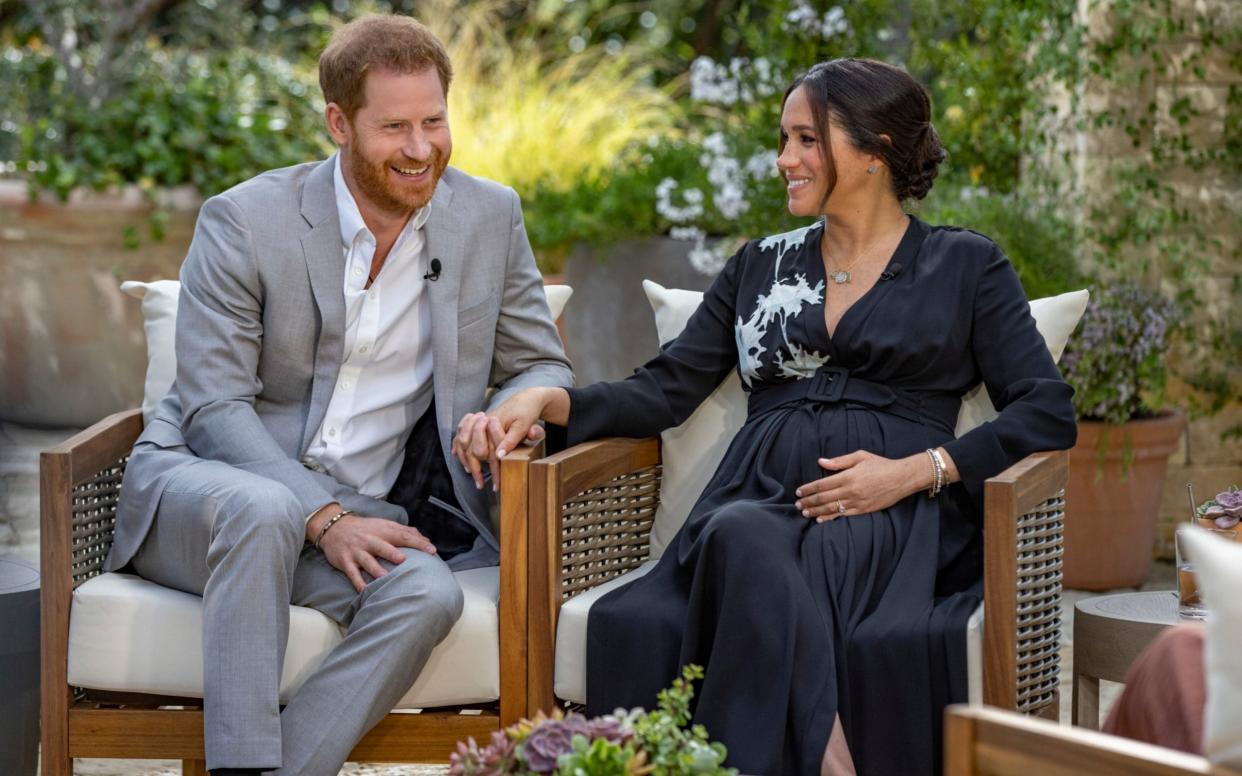
- Oops!Something went wrong.Please try again later.
- Oops!Something went wrong.Please try again later.
- Oops!Something went wrong.Please try again later.
After Oprah, the deluge. The world has finally heard Meghan and Harry’s side of the story, but having told it, what next? How will they live the rest of their lives? Will they be enjoying the quiet life in Santa Monica raising their two children, secure more blockbuster deals with the streamers, or develop their own Royal reality show like Prince Edward? We surveyed brand, celebrity and PR consultants on both sides of the Pond about what the duo should do next.
“Looking at the headlines after last night’s interview, Meghan and Harry are currently the most famous couple on the planet right now,” says James Herring, CEO of branding consultancy Taylor Herring, whose clients have included the BBC and Disney. “What they don’t do is as important as what they do. It’s important that fame is all channelled into something that’s positive.”
“The epic polarisation is problematic,” says one LA-based Brit who worked on aspects of the couple’s Netflix deal. “In the US, she is a biracial woman, thrust into a cold, inflexible, hierarchical family who cold-shouldered her from the start – while the UK’s national press has had it in for her from the beginning. In the UK, she is a narcissistic, brattish, overly ambitious Hollywood climber, who married for a power grab and has a victim complex. I think the truth is somewhere in between, but there is an ugly seam of institutional racism and anti-Americanism in the UK, and certain corners of its media, which has snowballed to the extent that she can do no right across the UK media.”
And yet, the UK media is not the Sussexes’ game at all. The arrival of rapidly growing global streaming services like Netflix and Spotify has dramatically altered the power structure of the world’s media industry, with national TV, radio and newspapers competing with Spotify’s 345 million monthly users and Netflix 204 million global subscribers.
The Netflix audience is younger, more diverse and far more woke than the average UK media outlet. The £112 million deal the Sussexes struck with the streamer was initially about the money – as Harry told Oprah: “My family literally cut me off financially, and I had to afford security for us.” But if played correctly this could become a strategic move that places them in a new category of global influencer – former power players who are using TV to advance their agenda, including the Clintons and the Obamas.
“The production deals Netflix is signing with the Sussexes, the Clintons and the Obamas are far more significant that people realise,” explains Ed Waller, managing editor of the television industry bible C21. “Look at the programmes the Clintons are making – they are all about empowerment and ticking the right box on women, children and continuing a political legacy. A hit on Netflix is soft media power with a footprint far beyond borders, press statements or political campaigns. A lot of the programmes are aimed at kids.
“There’s a propaganda dimension. They’re not just trying to make money – it’s about changing minds. With the Sussexes, Netflix is associating itself with the people that its target audience aspires to and getting great access.”
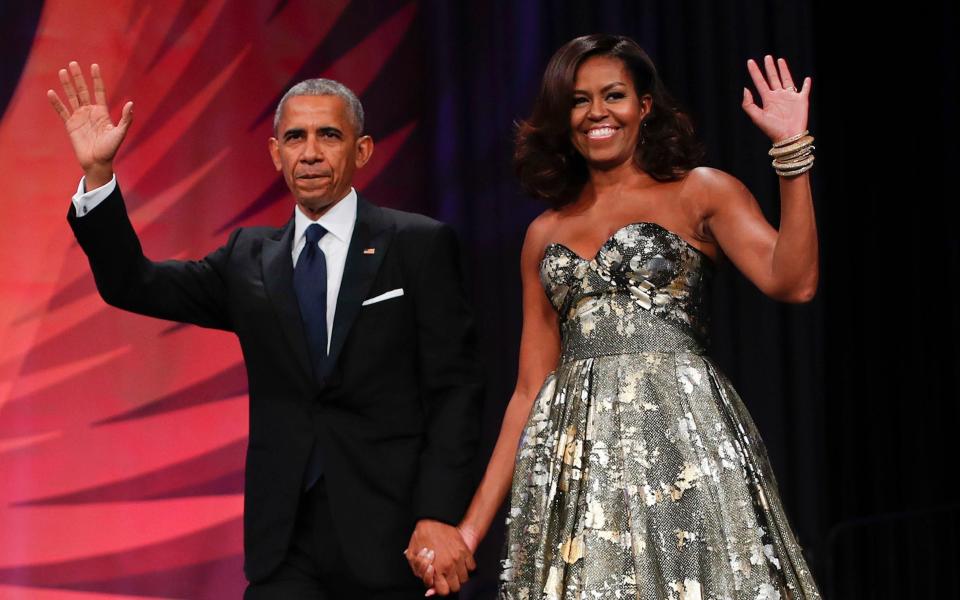
Given the fallout from Sunday night, however, some advise extreme caution in turning up on screen again too soon. “Too much chatter around Netflix and their media career makes it easy for snipers to write off their desire for independence as a cash grab exercise,” says Herring. “They need to follow Diana’s playbook and put their spotlight onto causes that don’t get enough attention – just as she championed landmines and HIV when neither received media attention.
“She wrote the rule book of the modern royal. What we don’t want is the sequel to Sarah Ferguson’s Budgie the Helicopter series. There are lots of causes coming out of this pandemic underfunded and struggling as charitable donations have dried up. They can add the Meghan and Harry effect in terms of profile, awareness and fundraising.”
“They’ve done the right branding things by moving to LA,” says Rachel Caggiano, managing director of Ogilvy PR in Washington, DC. “You can merchandise, you can do everything off your celebrity – that’s what LA is built for. In the US, just be famous, wear some labels, do some interviews, we’ll be so happy to have you. They have zero obligations so that now they can 100 per cent focus on what they believe in.
“I see them being the Bill and Melinda Gates of their issues – they have such an amazing platform. Harry is going to make a big case over the storyline of their life, and how what happened to him as a child cannot happen to his family. His pitch – sheltering his wife and kids from racism and sexism – will reach younger audiences so well.”
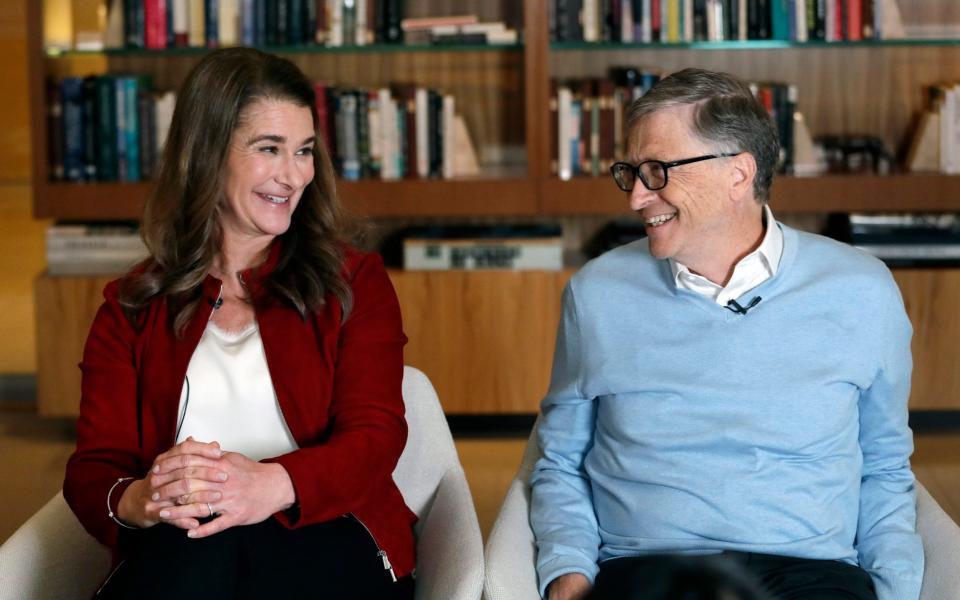
Caggiano notes that the couple “have some very smart people advising them”. Team Sussex is headed up by chief of staff Catherine St-Laurent, an ex-Bill and Melinda Gates Foundation employee who also serves as executive director of their new non-profit organisation, and includes former Pinterest comms boss Christine Schirmer as head of communications.
Markle’s agent Nick Collins handles their film and TV work and they’ve employed PR agency Sunshine Sachs, whose founder Ken Sunshine worked for Bill and Hillary Clinton’s presidential campaigns and represents the likes of Leonardo DiCaprio, Lin-Manuel Miranda, Jane Fonda and Natalie Portman. The Sussexes’ ability to pick the right people was underlined when, as soon as they left the UK, the Queen hired their former UK press officer Sara Latham.
For PR agent and author Mark Borkowski, who has worked on campaigns for Jimmy Page, Universal Music and Sir Cameron Mackintosh, “they’re doing exactly what they should – they have the perfect backdrop of a new child coming along, and having got rid of the Daily Mail, their accusations of bullying and lack of privacy have effectively been sanctioned by the courts. You have to think about Harry’s life. For me as a father – seeing those two boys walking behind their mother’s coffin – that is going to scar anybody.”
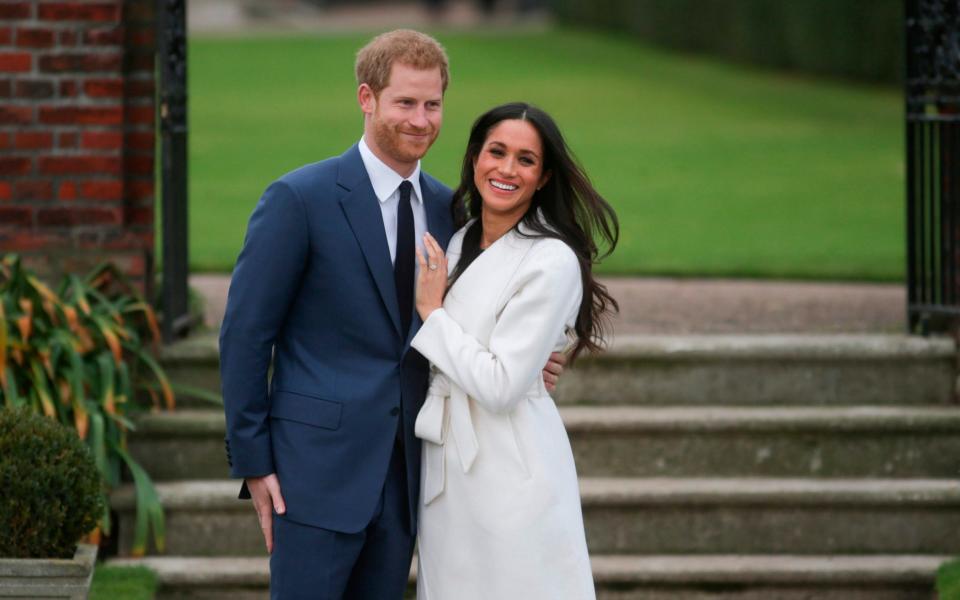
The key moment in understanding this, he argues, is the Queen’s Christmas messaging on Royal Christmas cards and during the Queen’s speech. On her table there are pictures of Kate, William, the kids, Charles and Camilla – the line of succession. Everyone else is a spare, and the spares have always struggled.
“Most of the women Harry was having romances with would never want the big job – they were British, the Tatler set, and knew they were looking at a life of opening health centres in Kettering on a wet Wednesday,” he explains. “Up comes this American who bought into the idea of a fairy tale prince. Now they are the future of the Royal Family. They want to create a foundation. He’s desperate to follow through on the work of his mother who disrupted the protocol of rigidity and service.”
The Royal family, Borkowski argues, have real issues with succession management as the boomers die out. The Queen has always represented the trusted brand, sacrifice, but Charles is anonymous. “How old will Charles be when he takes the throne? How old will William be when he eventually gets there?” says Borkowski.
“The Sussexes embrace global concerns. Their values are the Millennial and Gen Z values. You needed Harry and Meghan in the tent. Outside the tent – I’m sure they’ll be very successful. What the boomers and the editors and the chat show hosts hate – that’s irrelevant for the brand they’re building over the next 20-30 years. James Corden’s interview with Prince Harry garnered over 15 million views in its first week on YouTube, with the comments almost universally adoring.”
Opinion polls back this view up. Whilst a February YouGov poll found 46 per cent of the public thought the Oprah interview “inappropriate”, the generational split was dramatic. Fifty-two per cent of 18-24-year-olds thought giving the interview was fine, compared to 38 per cent of 25-49s, 20 per cent of 50-65s and just 11 per cent of those over 65. Breaking down the popularity of individual Royals, Harry and Meghan far outrank Charles and Camilla with Brits under 50, with approval ratings amongst 18-24s matching William and Kate.
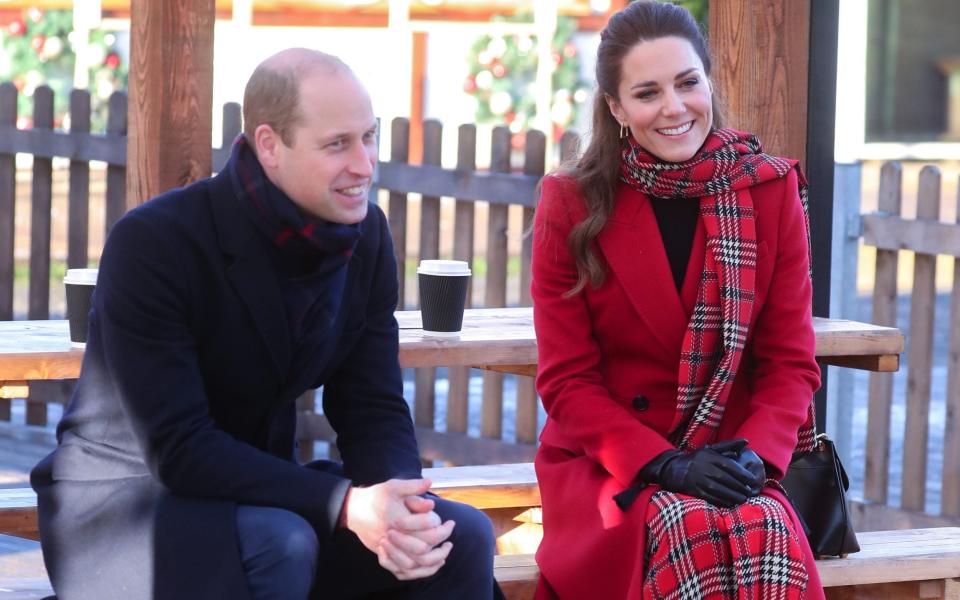
A Morning Consult poll of Americans, meanwhile, found even the Queen’s corgis scored higher than Prince Charles. The Queen topped the poll with a favourability rating of 53 per cent followed by the Duchess of Cambridge at 49 per cent, Prince Harry at 46 per cent, Meghan at 45 per cent and William at 42 per cent. Then it’s the corgis, then it’s Charles.
For now, says Herring, they need to disappear for a while. “Every red carpet takes them five steps back,” he explains. “Every time they go to an event all of the snipers will reload and take aim. It will be an uncomfortable ride.”
The consensus? It seems the couple could evolve over the next 20 years into a kind of funky Bill and Melinda Gates. “They’re a hybrid brand so their foundation will probably mix mental health and planet concerns,” says Caggiano. “Boomers will struggle to see that’s important, but that’s not the couple’s demographic any more.”

